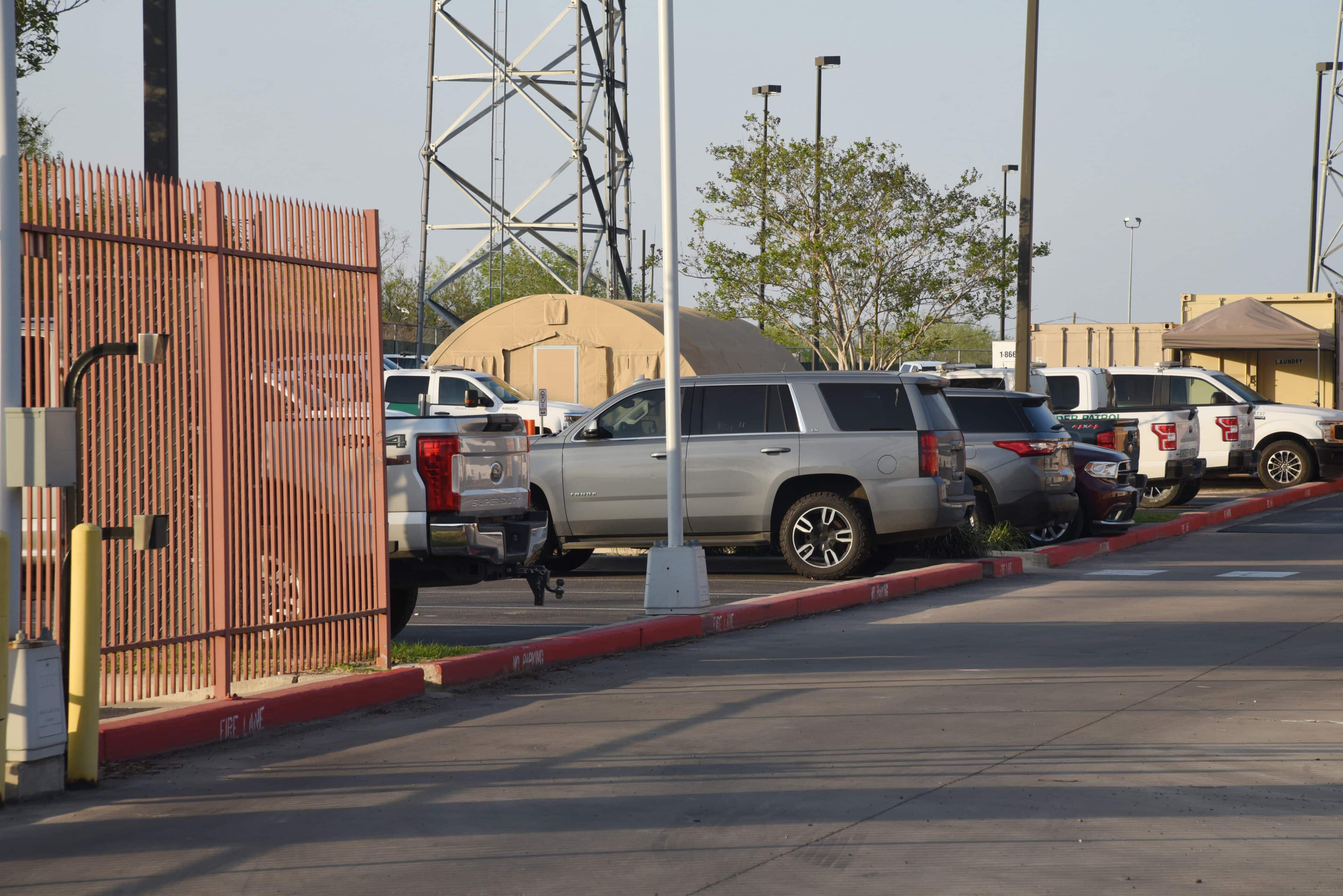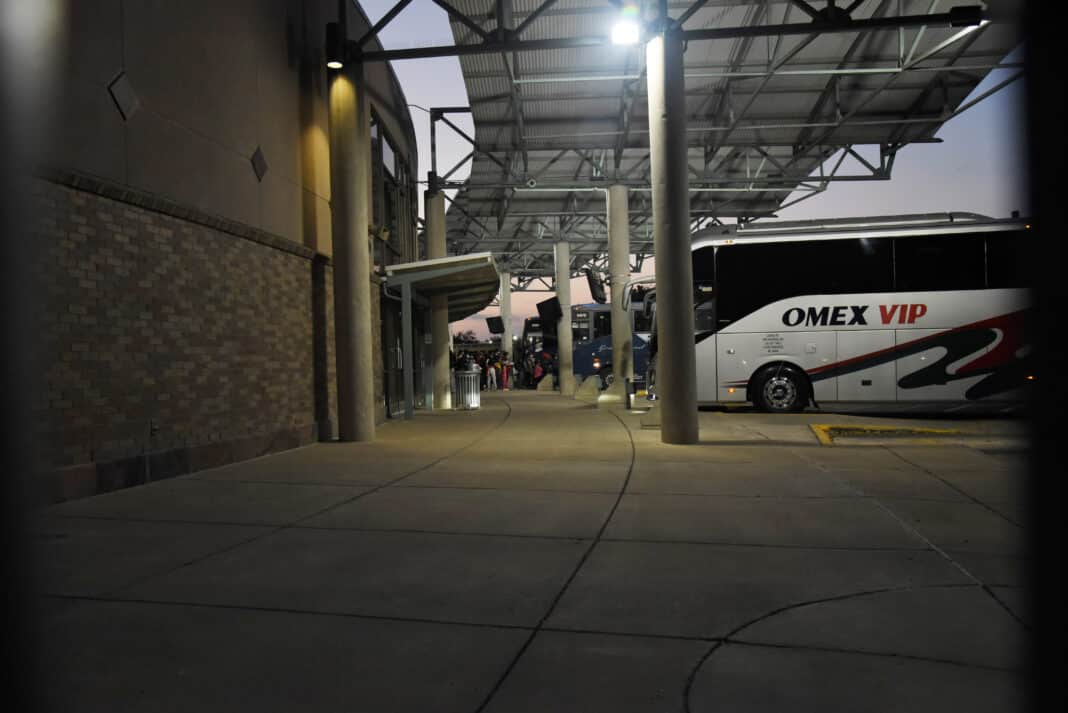U.S. Border Patrol in the Rio Grande Valley are releasing certain migrant families without a notice to appear at immigration court at a later date, a rare move that demonstrates the overcrowding in the sector.
An email shared with The Monitor was addressed to Border Patrol at 8:20 a.m. Sunday and authorizes agents in the Valley sector to use “prosecutorial discretion,” a long-standing authority that allows the release of migrants without criminal histories or previous deportations.
Most families released until Sunday were processed and given a notice to appear at an immigration court at a future date. That is taking hours and days to move them through the procedure while thousands accumulate in the queue.
As of Sunday, about 5,000 people were in custody in the Valley, according to a source with knowledge of the situation. The number represents over 600% of their capacity of 700, which remains under COVID-19 restrictions.
U.S. Customs and Border Protection shared a statement which reads: “There is no change in policy: the border remains closed.”
“Families and single adults are being expelled under Title 42 and should not attempt to cross illegally,” the statement further reads. “If Mexico does not have capacity to immediately receive an expelled family — and we are working with our partners in Mexico to increase their capacity — the family is tested and quarantined as needed and placed in immigration proceedings to commence its removal from the United States.
“In some cases, families are placed in removal proceedings further along in the release process rather than while they are at the border patrol station. All families, however, are screened at the border patrol station, including the collection of biographical and biometric information and criminal and national security records checks.”
Most people entering the country without authorization are subject to expulsions under a federal public health code known as Title 42. Single adults and families with older children are expelled from the U.S.
However, families with children of a certain age and children entering the country without a legal guardian are not subject to the quick expulsions into Mexico.
Families can only be released from Border Patrol facilities through prosecutorial discretion if they were eligible to be released through the longer process, according to the email.
Late Sunday evening, a group of migrants were dropped off at the COVID-19 testing tents in McAllen. Rosemary Perez, a 22-year-old mother traveling with her 27-year-old husband and 3-year-old son, were among the group walking over to the Catholic Charities of the Rio Grande Valley respite center.
“The structural conditions were a little bad,” the husband said. “We were under a bridge, but it’s nothing compared to the places we’ve been in the brush and in Mexico.”
The couple said they were under the Anzalduas International Bridge since 1 a.m. with a group of about 600 people detained by agents.
In January, Border Patrol created the outdoor intake site to help process the influx of migrants. To date, they have apprehended over 133,000 since October, the start of the fiscal year.
Migrants like Perez said they came for a better future for her child who turns 4 on Monday.
Perez and her family were released after agents collected some personal information and gave them some forms, but not all forms, like the notice to appear at immigration court, were filled out by agents.
Migrants released in this fashion are expected to make contact with U.S. Immigration and Customs Enforcement to sort out their immigration hearing proceedings, otherwise they could be considered to be in the country illegally.
The releases are expected to continue until the overcrowding in the sector subsides.
Non-governmental organizations, like Loaves & Fishes, a shelter in Harlingen, were told to expect hundreds of releases Sunday and Monday. Though, none were sent to Harlingen as of Sunday evening.
Border Patrol continues to send migrants apprehended in the Valley to Laredo via buses and El Paso using airplanes.
Facilities are still expanding. Certain Border Patrol stations like those in Weslaco and Rio Grande City now have tents outside their buildings on the parking lot.

U.S. Customs and Border Protection is also looking to increase their accessibility by adding restrooms and hand-washing stations in Border Patrol facilities and CBP areas.
Another outdoor intake site like the Anzalduas International Bridge is also under consideration at the southernmost end of Falcon Lake. Yet, capacity continues to be a challenge for the agency which recorded 10,000 apprehensions in the last week alone, according to a social media post by the Border Patrol chief in the Valley.
Agents are also tasked with caring for migrant children entering the country without legal guardians. As of Sunday, about 4,800 were held in Border Patrol facilities. Of those, about 3,200 were held longer than the three-day limit, around 2,200 for longer than five days, and 800 were there for over 10 days.
Children are not eligible for expulsions into Mexico and can only be transferred to the custody of the Office of Refugee Resettlement, which is facing logistical problems finding adequate spaces throughout the country.




